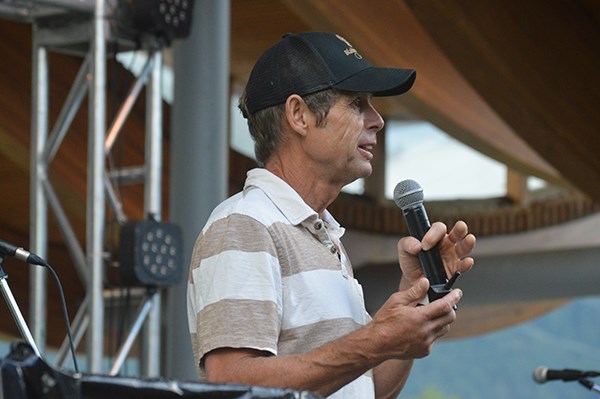Scaling the Grand Wall of the Stawamus Chief, renowned climber Peter Croft is back where his career began in the ’70s.
“I would take the ferry from Departure Bay and hitchhike into Squamish or get a ride with a friend,” said Croft, who was visiting last week for the Arc’teryx Climbing Academy.
“The climbing community has changed. Some climbers look back to the ‘good old days,’ but I think all the change is fantastic.”
Croft began climbing at a time when Squamish wasn’t yet known as the Outdoor Recreation Capital of Canada.
“There were hardly any climbers. It was usually just me and a buddy,” he said. “Squamish was mostly a logging town, and it wasn’t so friendly to hikers and climbers.”
But times have changed and now Squamish is known as the “Yosemite Valley of Canada” to many climbers across North America. Croft now lives in Bishop, Cal., to live closer to the year-round dry weather at the 747,956-acre national park.
“Today, Squamish is so relaxed and friendly,” he said.
From July 14 to 17, around 600 climbers and their friends gathered for the Arc’teryx Climbing Academy where they learned new skills and had the chance to scale Squamish’s legendary routes.
The annual four-day event kicked off at O’Siyam Pavilion Park in downtown Squamish with a screening of The Enchanting Triple, a short film about a climbing journey through the Stuart Range, a jagged collection of peaks in Washington State.
Croft followed as a keynote speaker before upbeat music from Vancouver-based indie rock band Yukon Blonde.
“We had people from all over the U.S..... and Canada come out to Squamish,” said Arc’teryx’s Justin Sweeny, who is a climber himself. “We had record-breaking numbers this year.”
He said the number of female climbers continues to increase, and now participation in the climbing festival is almost evenly split between women and men.
On Friday afternoon, the Sunset Speakers Series venue shifted to the elevated open air of the Sea to Sky Gondola for an intimate evening of presentations, film screenings and music.
International climbers Jonathan Siegrist and Kate Rutherford told stories of risk, failure and success from climbing throughout the world, followed by the Canadian premiere of Poumaka, a short film about a National Geographic explorer-climber who makes the first accent of the jungle tower on the French Polynesian Marquesas Island of Ua Pou.
Another short film, Haywire, featuring the raw beauty of the rarely-seen Baffin Island alpine wilderness, was also screened.
Squamish climber Paul McSorley, who works as a climbing guide and high ropes rigger, along with fellow climber Ines Papert, shared stories of their intrepid experiences the following night.
Vancouver-based indie bands The Boom Booms and Bear Mountain played into the night as the climbers relaxed after a day of strenuous work.
“I have a bunch of favourites in Squamish, but the Grand Wall is probably it,” said Croft, who said rock climbing can be a sport for a wide range of people.
“Even if you’re afraid of heights, you should still try climbing. You need to get a feel for it and learn that it’s safe because once you get out there, there is an absolutely amazing feeling of exhilaration.”



